Publications
Articles, publications, books, tools and multimedia features from the U.S. Institute of Peace provide the latest news, analysis, research findings, practitioner guides and reports, all related to the conflict zones and issues that are at the center of the Institute’s work to prevent and reduce violent conflict.
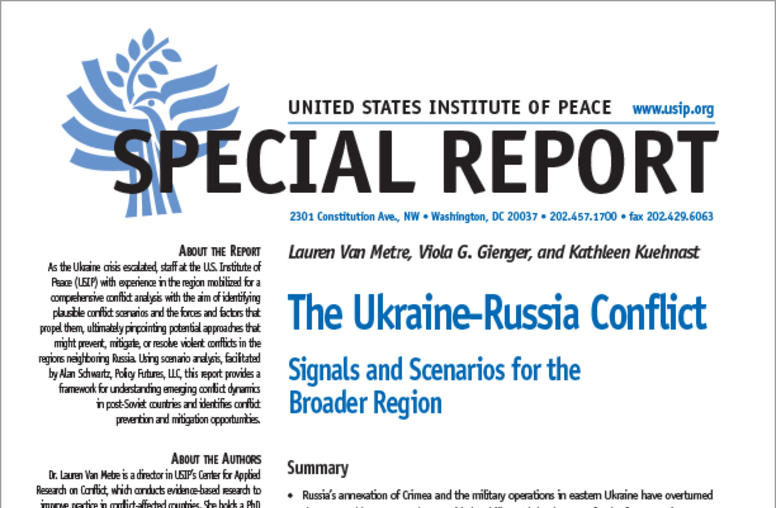
The Ukraine-Russia Conflict
Russia’s annexation of Crimea and its military operations in Eastern Ukraine have overturned the post–Cold War norms that had provided stability and development for the former Soviet countries bordering Russia. As neighboring countries assess their own security situation based on Russia’s aggressive practices in Ukraine and the West’s response, they are actively testing the new contours of Russian and Western engagement, regional alliances and relationships, and regional conflict dynamics.
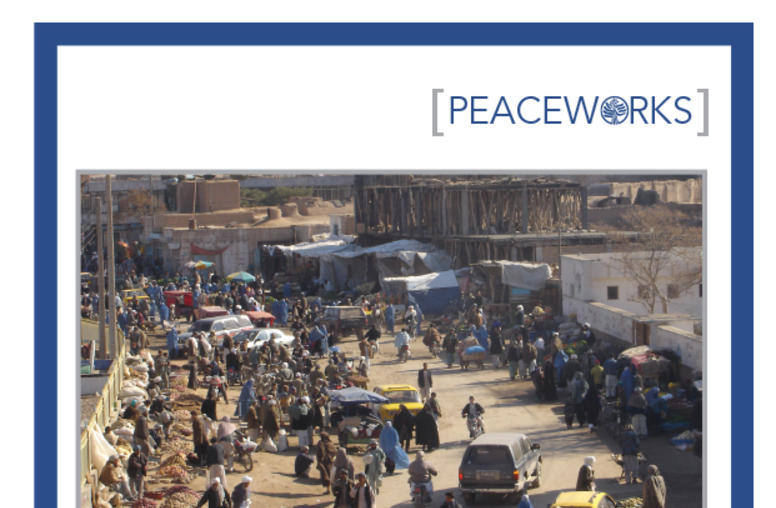
Political and Economic Dynamics of Herat
The city of Herat sits in Afghanistan’s most western province, on the border with Iran, and is significant on several counts. A major trading hub and the largest city in the region, it is in some respects an exemplar for the entire country. One the one hand it is a prevailing spirit of enterprise, on the other persistent insecurity and ad hoc urban development. How the new national unity government in Kabul unfolds will have significant implications for how Herat is able to meet the challenge...
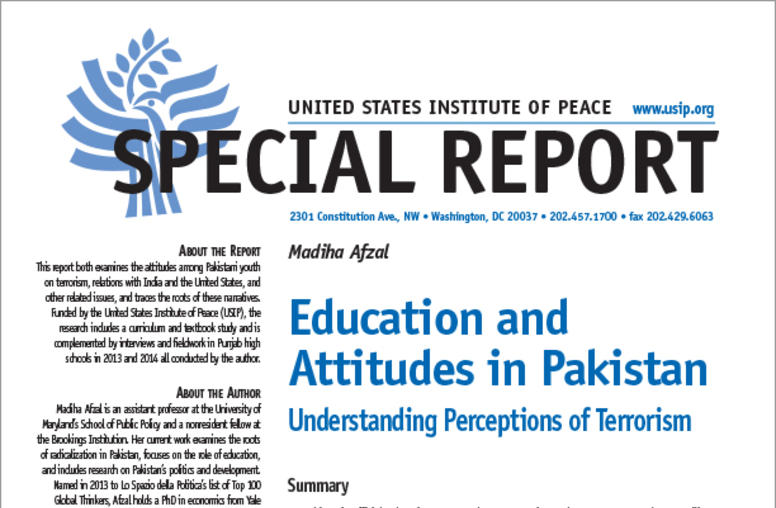
Education and Attitudes in Pakistan
Why do Pakistanis continue to hold a skewed assessment of the Taliban threat to their country? What underlies their attitudes toward the Taliban, the United States, India, and religious minorities? This report draws on author interviews and fieldwork undertaken in Punjab in 2013 and 2014 as well as on a detailed curriculum and textbook study to identify and trace the roots of these attitudes and suggest ways out of the dilemma for Pakistan’s policymakers.
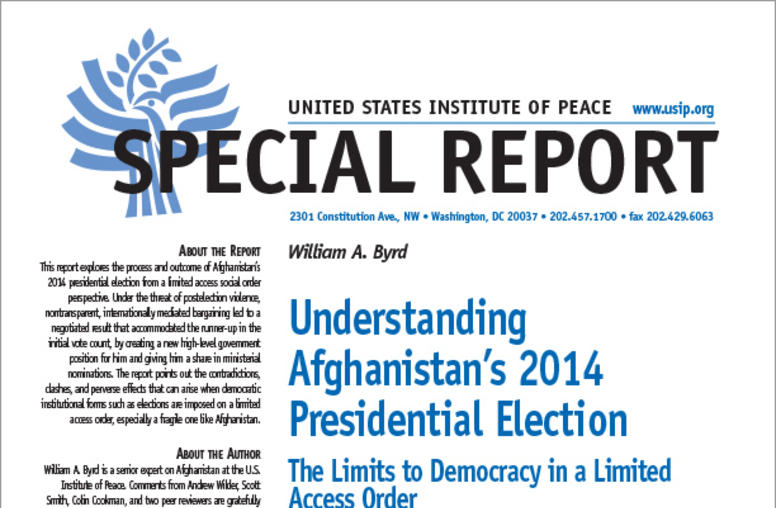
Understanding Afghanistan's 2014 Presidential Election
Afghanistan’s 2014 presidential election did lead to its first peaceful transfer of power. The process, however, was scarcely democratic. This report explores the election and its internationally mediated unity government outcome. Elections—when they can even be held in fragile and conflict-affected situations—tend to be more destabilizing than stabilizing. The overall lesson, as this report makes clear, points to certain critical needs for such countries: a better understanding of inherent i...
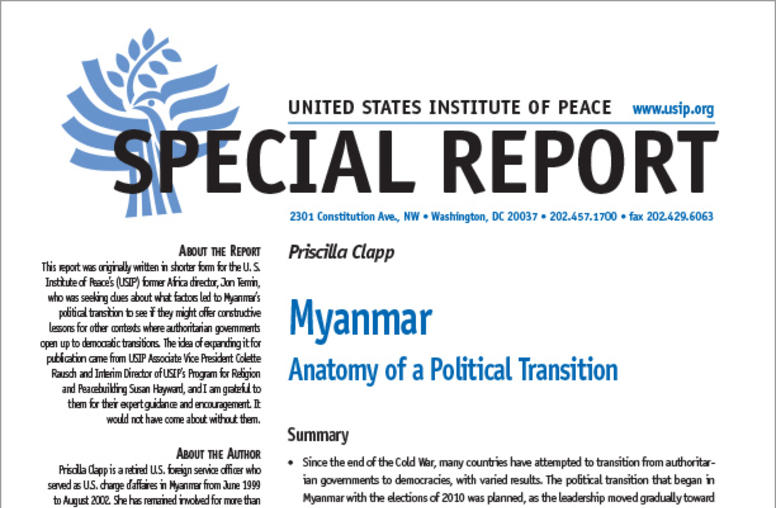
Myanmar
Many countries have attempted to transition from authoritarian governments to democracies, with many false starts. The political transition that began in Myanmar with the elections of 2010 was heavily planned by military leaders to gradually move toward democratization while retaining many of the authoritarian structures of the previous government during the transition. As Myanmar’s success has attracted great interest and support from the international community, this study analyzes the elem...
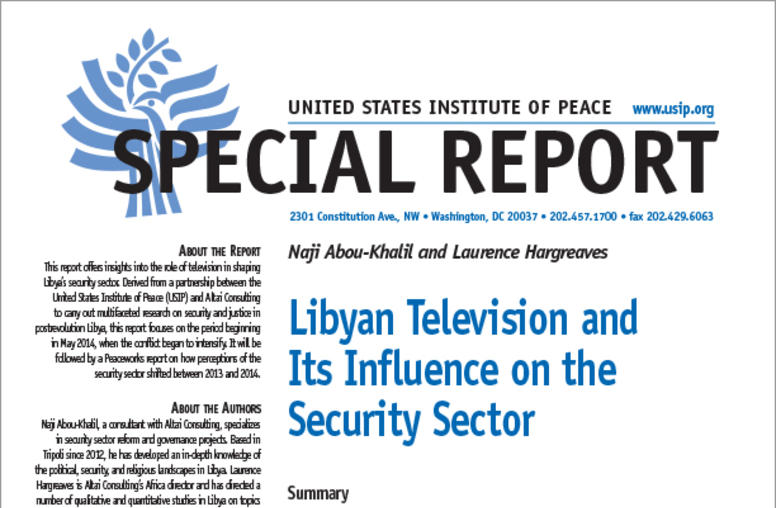
The Role of Media in Shaping Libya's Security Sector Narratives
During and after Libya’s revolution, national media outlets became known and popular for their balanced reporting. The situation in the few years since has changed, however. The security landscape in Libya today is a confusing array of institutional and non-institutional actors each asserting legitimacy. The country is on the brink of full-scale civil war. Its media has become both polarized and a key tool for many security actors. This report looks at three primary television channels to off...
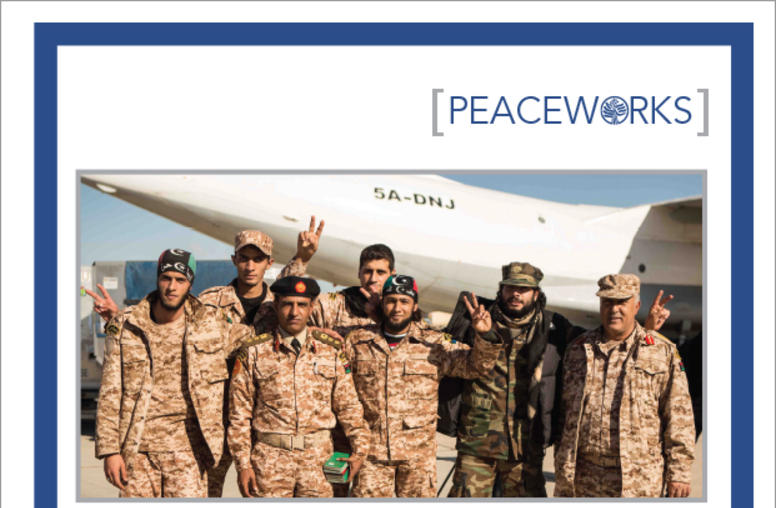
Perceptions of Security in Libya
Three years after the fall of Muammar Gadhafi and his regime, Libya is again on the brink of civil war. Various circumstances underlie this predicament—mistrust between regions, political power struggles, and sporadic and uncoordinated security and justice sector reforms. So that better understanding of the security needs of Libyan citizens today is possible, this report assesses the popular legitimacy of security providers in the country today and identifies their local, religious, and legal...
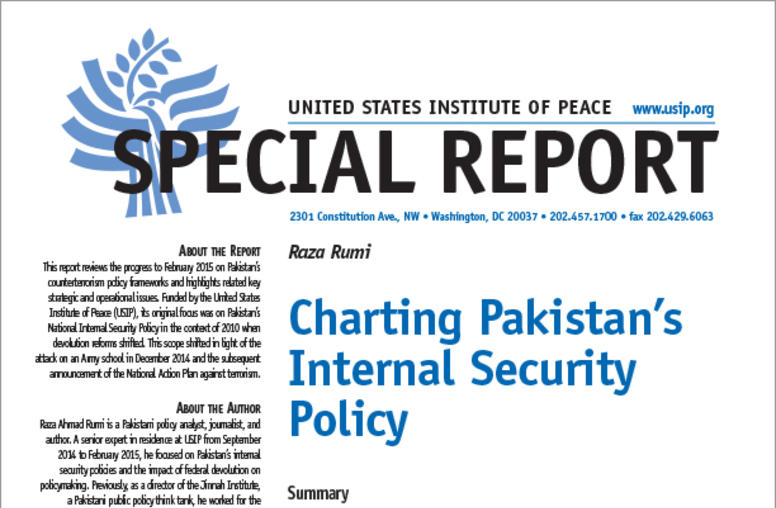
Charting Pakistan’s Internal Security Policy
Traditionally ruled by military or quasi-military regimes, Pakistan is struggling to strengthen its democratic governance but the military remains in charge of country’s security policy. This period of incremental democratization corresponds to the unprecedented rise in terrorism and domestic insurgencies that have challenged state capacity and taken a toll on both the morale of the country and the economy. This report reviews Pakistan’s progress in devising and implementing counterterrorism ...
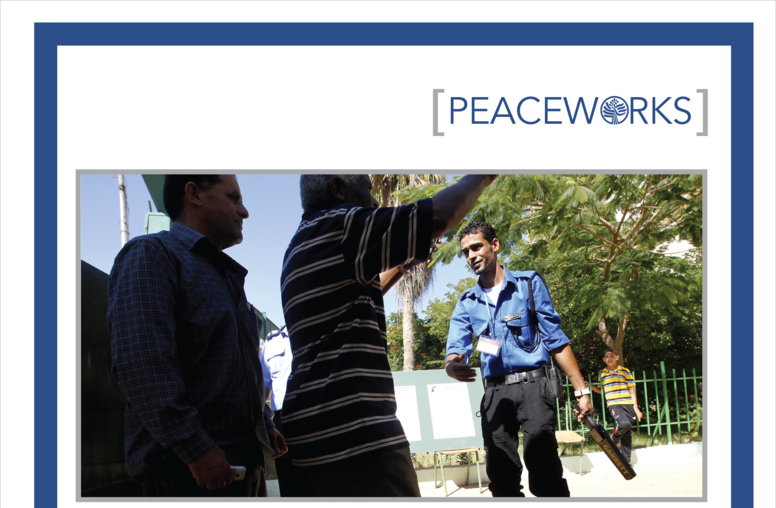
Libya’s Next Elections: A Step Forward or a Step Back?
Since the uprisings in Libya began in February 2011, the country has seen considerable and almost constant upheaval. International players have tried to facilitate a transition to democracy, but success has been fleeting. Now, in the midst of political division and internal conflict, Libyans are attempting to hold presidential...
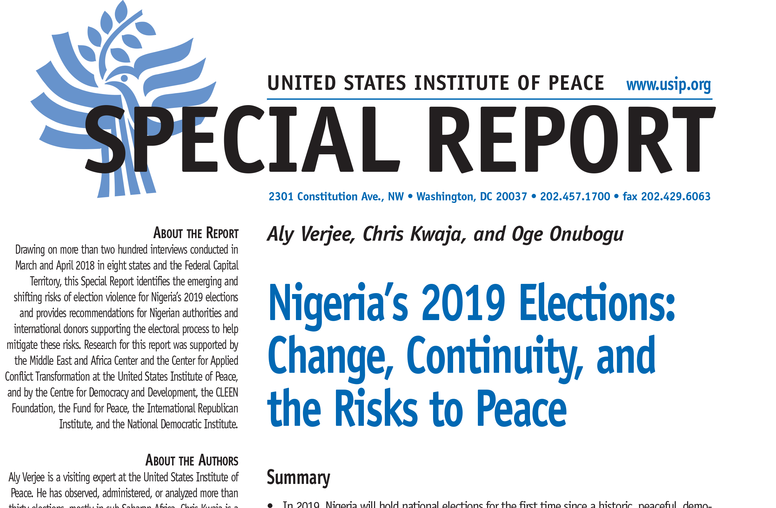
Nigeria’s 2019 Elections: Change, Continuity, and the Risks to Peace
Drawing on more than two hundred interviews conducted in March and April 2018 in eight states and the Federal Capital Territory, this Special Report identifies the emerging and shifting risks of election violence for Nigeria’s 2019 elections and provides recommendations for Nigerian authorities and international donors supporting the electoral process to help mitigate these risks.